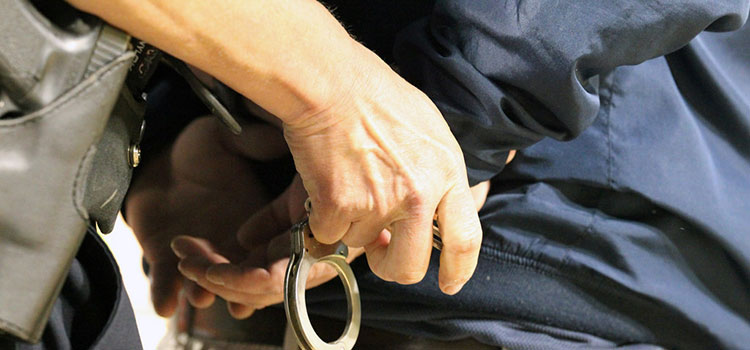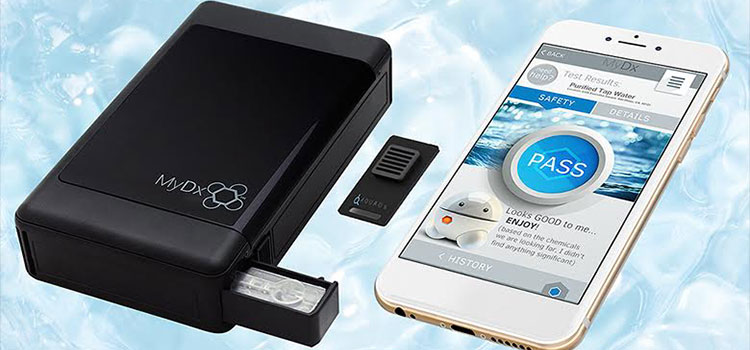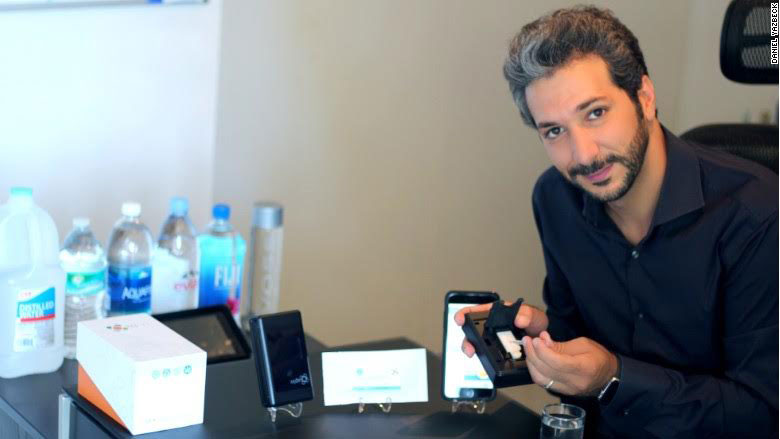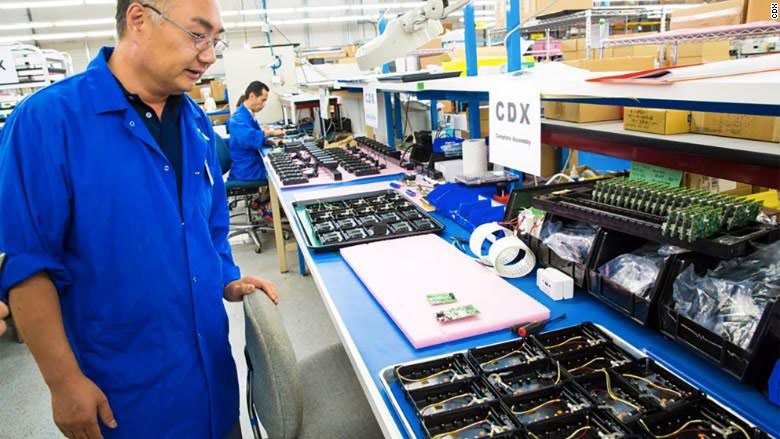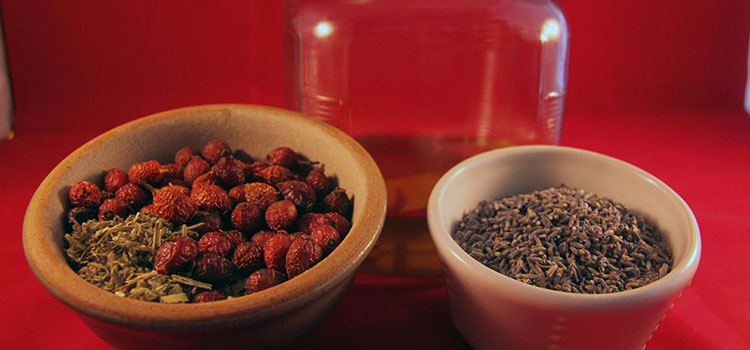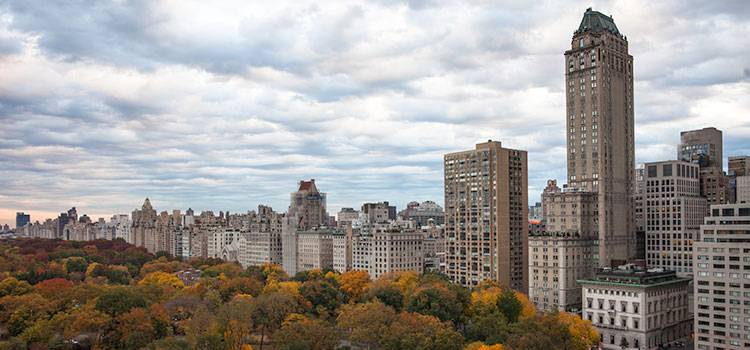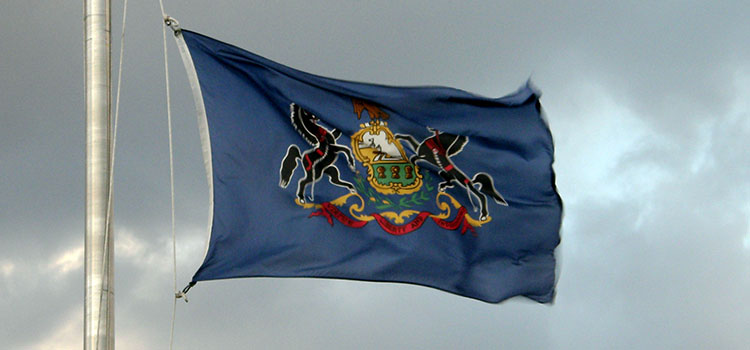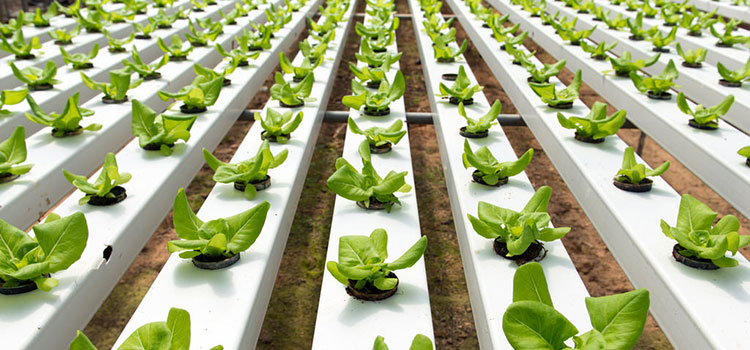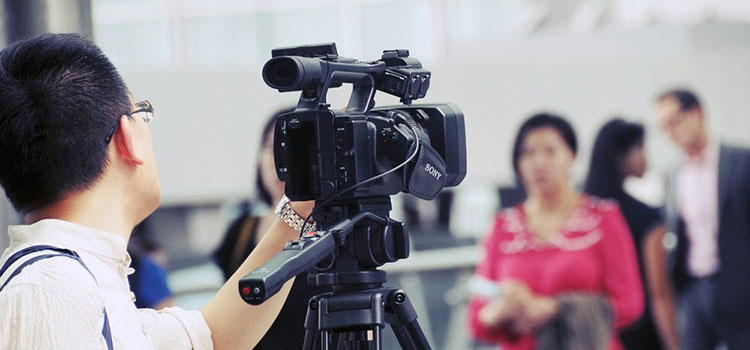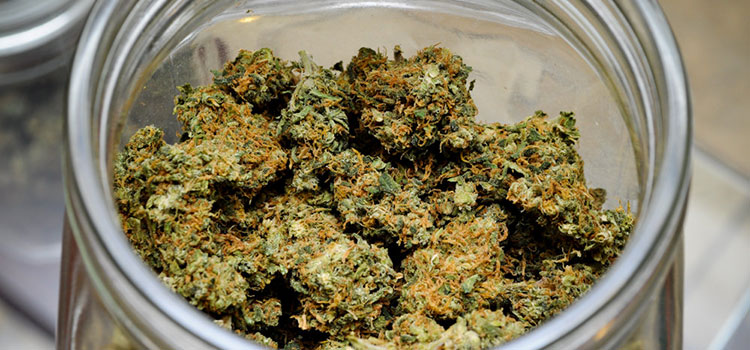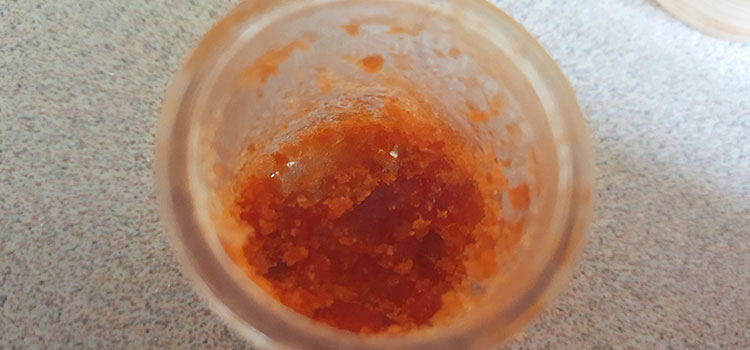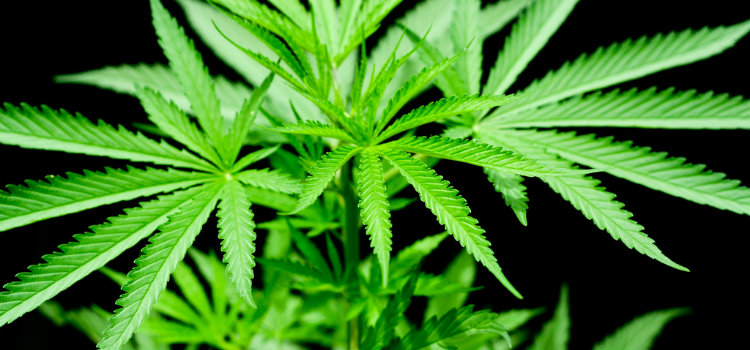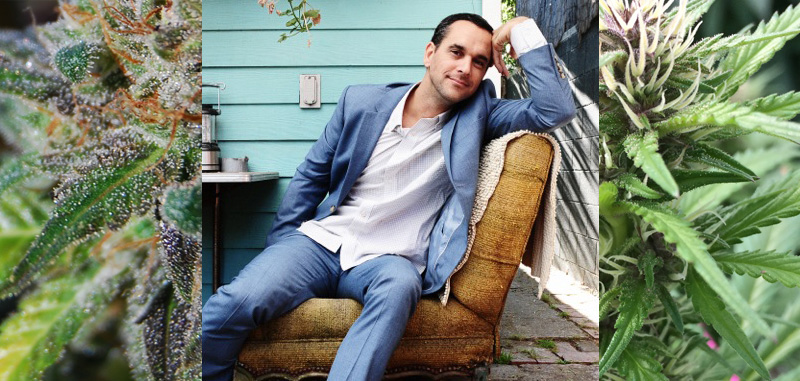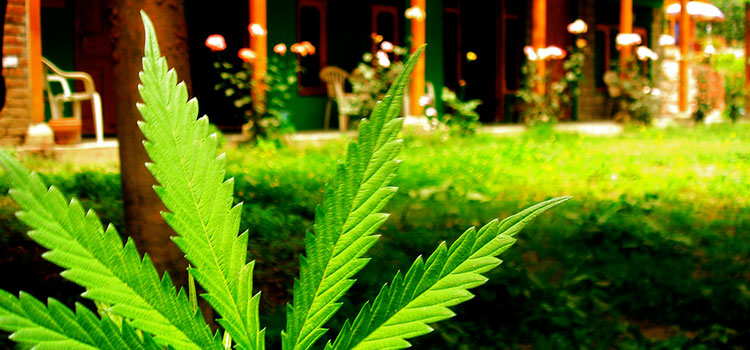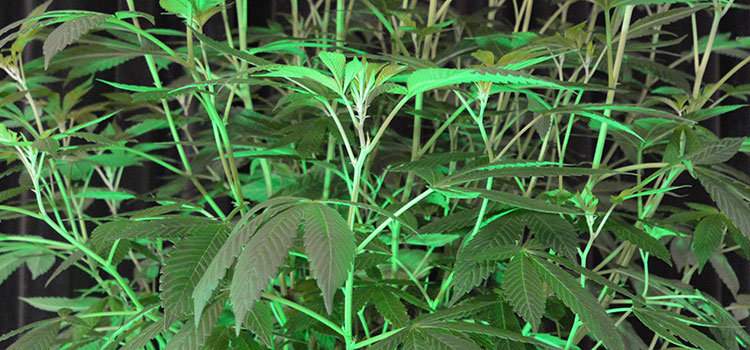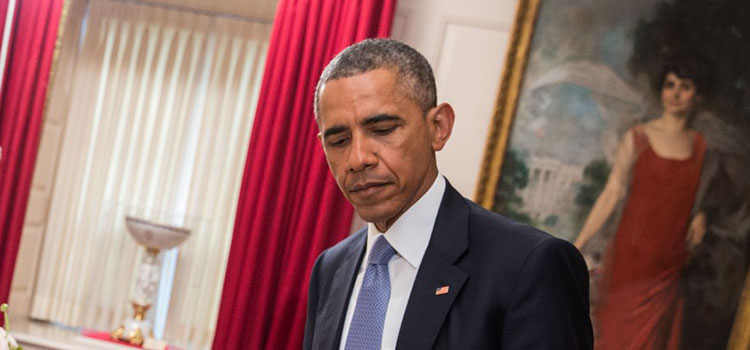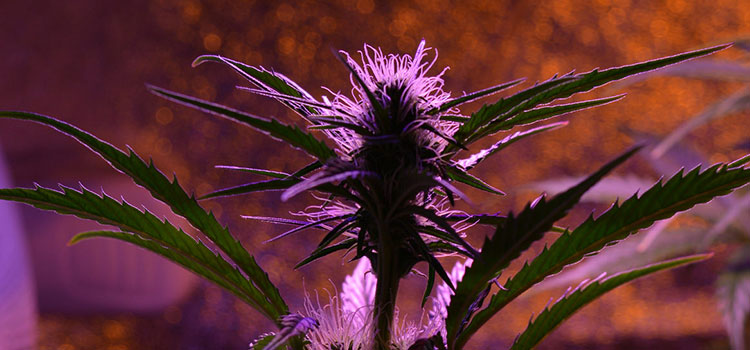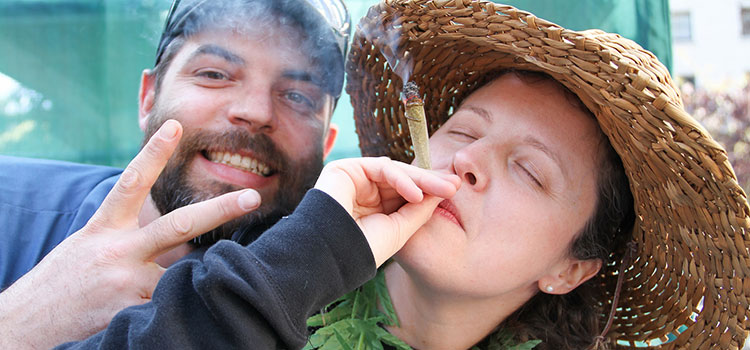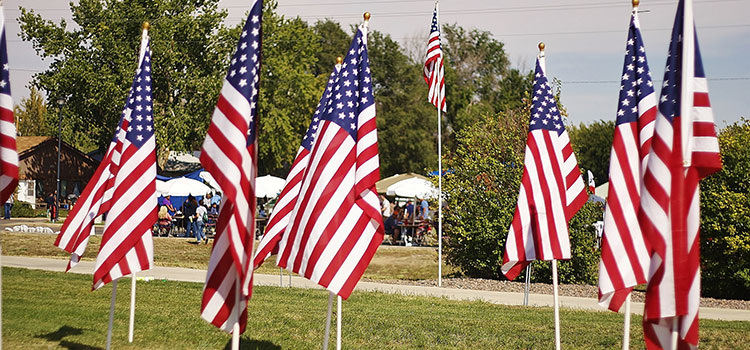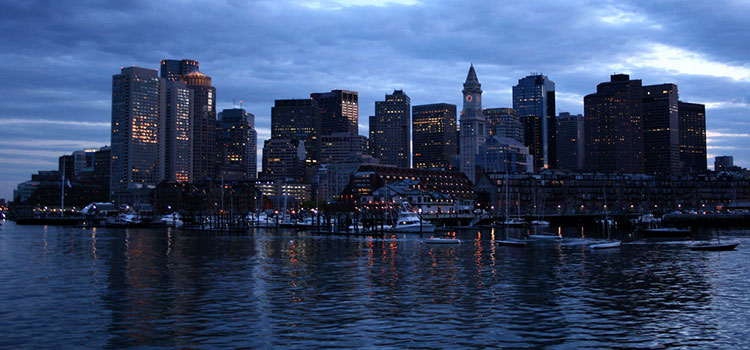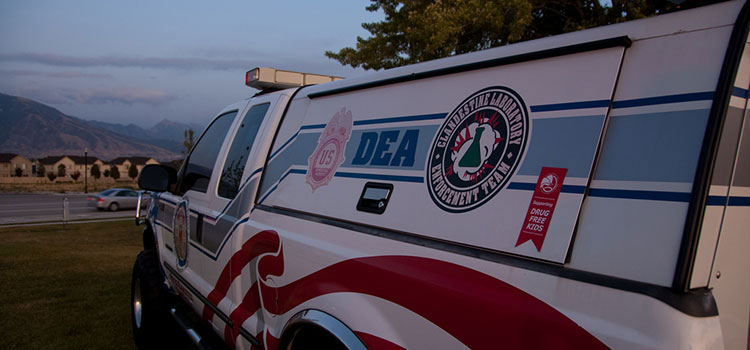Kenny Morrison is the founder and CEO of VCC Brands (formerly known as the Venice Cookie Company), a California-based cannabis edibles producer. He also co-founded the sister company Evergreen Herbal, one of Washington’s licensed edibles and oils manufacturers.
Kenny recently joined our podcast host Shango Los for a conversation about experience building an infused edibles company from the ground up, the different extraction techniques his companies use to produce their infused products, his hands-on experience in preparation against federal raids, and much more.
Listen to the podcast below, or keep scrolling down to read a full transcript of this week’s episode.
Subscribe to the Ganjapreneur podcast on iTunes, Stitcher, SoundCloud or Google Play.
Listen to the podcast:
Read the transcript:
Shango Los: Hi there and welcome to the Ganjapreneur.com podcast. I am your host, Shango Los. The Ganjapreneur.com podcast gives us an opportunity to speak directly to entrepreneurs, cannabis growers, product developers and cannabis medicine researchers, all focused on making the most of cannabis normalization. As your host, I do my best to bring you original cannabis industry ideas that will ignite your own entrepreneurial spark and give you actionable information to improve your business strategy and improve your health and the health of cannabis patients everywhere.
Today is our 54th episode and will be my last as podcast host for Ganjapreneur. I’ve very much enjoyed bringing you interviews with some of the brightest minds in the cannabis industry. The Ganjapreneur Podcast will continue without me and I will be moving on to a book tour and a few other exciting media projects over the next 6 months, in addition to continuing to teach cannabis business demotivated entrepreneurs. If you like my approach to cannabis and want to stay in touch, I encourage you to go to shangolos.com and sign up for my newsletter so you can stay up-to-date. Thank you for sharing time with me and now on with the show.
Today my guest is Kenny Morrison. Kenny Morrison is founder and CEO of Venice Cookie Company, now known as VCC Brands, specializing in cannabis edibles for the California market and co-founder of Evergreen Herbal, a licensed Washington cannabis edibles and oils maker. Welcome to the show Kenny.
Kenny Morrison: Hey, hey, thanks for having me.
Shango Los: Glad you could be here. Venice Cookie Company was launched in California and has expanded into Washington as Evergreen Herbal. Tell me a little bit about the early days of the company.
Kenny Morrison: We started in 2008, co-founded it with Marco Hoffman, a longtime friend and conspirator. We were pretty early on in the scene and we just were looking to solve the problem of patients in California and collectives being able to get ahold of products that were made by an organization beyond what’s sort of in the early days been referred to as the backpacker. A lot of people in the early days were coming into the dispensaries that they were members of, coming into their collective, with food products, cannabis-activated food products in a backpack, and there just seemed something a little maybe not so health-compliant about that. So really it was our goal to set up a business where we could provide products that were made by safe certified chefs in health compliant kitchens and package them well, have really informative packaging, and just let people know through the branding and through the product experience that they’re really well-taken care of on multiple levels.
Shango Los: Yeah, and I bet the standardization of dose was something that you were able to bring as well. Because those backpack days, brownie number 1 is a different strength than brownie number 7 which is different than brownie number 12. That’s one of the challenging things when you’re … Heck, even when you’re not a patient, even if you’re just a recreational user, you want to know what your experience is going to be like every time. The standardization, I can see how that would be a real benefit to patients and others alike.
Kenny Morrison: Yeah, we learned really, really early on that people we’ve discussed edibles with, 99% of them had an experience where maybe they got a bigger dose than they were hoping for. We learned really, really early on that is not something we want to hear people say. We want to give people a sense of safety and repeatability and consistency, and teach people how many milligrams their dose was. From the beginning, yeah, that was a big goal.
Shango Los: Right on, right on. VCC Brands has a wide array of products. When I was last down in southern California I got to see them in dispensaries. It’s pretty astonishing. You guys go from hard candies to chocolates to tea bags and other beverages and tinctures. A lot of cannabis startups trip over themselves just trying to bring a product to the market. Yet, you’ve got a lot of SKUs. Can you give us a snapshot of what your product development cycle looks like, because you must have something down that other folks are still to catch up on?
Kenny Morrison: What does a product cycle look like? I mean, I guess it really starts with the sales team and what they feel they need to effectively serve the market and serve the patient or the consumer, depending on where it is. I’m really, really big on making sure everybody is part of the process and it’s very … It takes a certain level of obsessiveness to really think of every possible approach and every possible outcome and refine, refine, refine. I mean, just the proofreading process alone for a label with all of the required regulatory warnings and space for the UBI code or the space for your lot and batch label, just it takes a lot of work. It definitely helps to be obsessive and it definitely helps to live it, breathe it, think … dream about it.
Literally the first thing I think about in the morning when I wake up at 5:30 or 6:30, the first thought in my mind is always something to do with product development or some aspect of the business, some aspect of communicating more effectively, all those sort of things. Passion, I still boil it down to one word. If you’re passionate about it, it makes it easy to deal with it. You have to have a certain mindset. You have to have a certain approach. They say writing is rewriting, and I think brand product development is developing is redeveloping and refining and questioning everything, questioning absolutely everything.
Shango Los: One of the things that you start, you mentioned at the beginning of your answer I think is really important for us to highlight. That is that you ask your sales team what they think that they can sell, what are they seeing on the street as something that is being looked for, or overlooked in the market, where the opportunity is, because so many product developers, they come up with a novel idea on their own and they don’t really do any market research. They’re like, “Oh, I got this cool idea. I’m going to go ahead and make this thing.” So they develop time into developing the food or the beverage or the whatever it is and then spend time on the labeling and the packaging. Then they go to the market and they teach their sales people how to sell it, and they’re kind of hoping it’s going to sell.
You turned that on its head. You go to your sales people and say, “Where’s the opportunity? Because you are aware of the market on the front lines.” I think that is a very important delineation to make.
Kenny Morrison: Yeah, I mean, I think it can work both ways. Like Steve Jobs used to say that the customer doesn’t know what they want until we show them what they want. I think sometimes that is true. Sometimes we’ve reached out for feedback from the market and actually welcomed the market research. We put that product out and it’s not as big as we thought it would be. We even were discussing the other day these cappuccino flavored Lays potato chips or the chicken and waffles flavored Lays potato chips. Those are ideas that are, sometimes when you go to the public and you ask them for an idea, they don’t necessarily think of something that is going to be desired by tons of people. They’re more interested in sort of something that’s innovative and new and different. Different isn’t always what’s necessary. Just because you can make it, doesn’t make you should.
Sometimes it can work that way where you can just in a vacuum come up with something that the masses will really appreciate. More often than not it’s best to go with what the market is telling you via your sales team. I guess that’s really because at this early stage we’re just now starting to get some reliable market data from different companies like Headset in Washington and other companies elsewhere. One of the toughest parts about the product development process is that there’s not a lot of solid market research available. But then that’s just starting to change, which is really helpful.
Shango Los: Right on. Cool. I want to talk specifically about a couple of your different products, but before we do that we should probably go ahead and take our first break. You are listening to the ganjapreneuer.com podcast. We’ll be right back.
Marketing and brand agencies can be really unhelpful sometimes. I mean, you pay them, and you have meetings, but there doesn’t always seem to be real value created. Sure, they may make you a logo or a website, and you talk about the image your company wants to project, but that is not always reflected in the bottom line in the form of actual revenue. For a lot of startups, everything has got to feed the bottom line, just so they can survive. That’s what Blunt Branding does. They feed your bottom line.
Blunt is very different from other agencies, because their principals, Kirsten Nelson and Anthony Garcia, are experts in psychological marketing. For example, they don’t just write copy for your website. They write copy that includes hooks and triggers for every Myers-Briggs personality type. Most copywriters tend to write only for people who think like them. Blunt Branding does better than that. They reach all your potential customers. In fact, if there’s a certain kind of customer that you don’t want, say argumentative folks, Blunt will write you copy that attracts everyone else, but will tend to repel the kind of customer that gives you grief. I’m not kidding. This strategy is used by their attorney clients all the time.
Your brand is much more than a logo. You see, most customers wait for some company to wow them with something more than they came shopping for, especially when there are so many options, right? They’re looking for a brand to anticipate their questions or solve their problems, or just make them feel seen, heard, and valued. I know that can sound corny, but we all know that we buy from the companies that we feel most engaged with, and Blunt Branding will get them climbing over your competitors to get to you.
If you cannot risk business failure, you should be working with a marketing team who understands that their goal is not just to make you pretty, but to directly increase your sales success, too. Go to bluntbranding.com to find out more.
Welcome back. You are listening to the Ganjapreneur.com podcast. I’m your host, Shango Los, and our guest this week is Kenny Morrison, founder of Venice Cookie Company and co-founder of Evergreen Herbal. Before the break, we were talking about the product development cycle and the wide array of products that VCC Brands has. One of the things that you guys have got that I really like is your beverage, your quencher beverages. That is one of the challenges that people across the country are having, is bringing a decent beverage to the market.
Kenny Morrison: Good.
Shango Los: So many people, it’s either not shelf stable and it divides in the store. Or they have up a hard time homogenizing it. Or the color changes. Beverages are a real pain in the butt. I’m not asking for trade secrets, but tell us a little bit about how you came to your formula for your beverages, other than a lot of swearing, probably.
Kenny Morrison: Honestly I think every product poses its own problems. One problem that makes beverages completely different than other products that most of our competitors sell is just the sheer volume that they take up. We have companies who compete with us by delivering in Priuses and other small vehicles, and when you’re a beverage distributor you can’t do that. I’ve had people tell me the black hole on any PNL for a beverage company is freight. That’s definitely true.
Shango Los: When working on your own beverages, did you know, I mean, I guess the ones that I’ve had of yours, they’re in different flavors but they’re kind of fruit punchy. Did you originally start with that idea for a beverage, or did you find that you wanted to do a beverage and that format actually had the easiest development cycle for you?
Kenny Morrison: Interesting story here is the beverage started in California as a non-carbonated drink. We definitely went into it with a concept. I basically approached a food scientist and said that I want to model it after Santa Cruz Organics or Newman’s Own lemonade, something that had pulp, something that was as natural as possible, something that was as organic as possible. We started the beverage in California as a non-carbonated drink and then we moved into no sugar added versions that are strictly sweetened by the sweet juice instead of cane sugar. Then when we took our recipes to Washington and released them in the medical market, they were a big success, everyone really appreciated them. But when I-5O2 came around the WSDA actually disallowed a non-carbonated beverage, so kind of back to the product development thing and the problems with beverages is the state of Washington actually disallowed our drink that we had originally conceptualized as a natural fruit juice lemonade, and, in a weird way, insisted that it be carbonated and almost become a soda pop. Right?
Shango Los: Mm-hmm (affirmative).
Kenny Morrison: I’ve never wanted to refer to our products as soda. That’s why I think we went with the name Cannabis Quencher Sparkling in Washington. It’s a sparkling beverage. But yeah, there’s been a lot of challenges along the way. I think the good thing to remember is back when we started in California in 2008 and developed the beverage in 2010, it was actually really hard to find food scientists that were willing to work with us.
We went to one facility to bottle the beverages and the guy literally had a panic attack in the middle of filling up the equipment. Just as we were doing it a sheriff happened to drive by outside the facility, or maybe it was just a security guard drove by in front of this big building, many, many units, many tenants, and the guy literally had a panic attack and just said, “I’m sorry. I can’t do this.”
Shango Los: Oh man.
Kenny Morrison: Marco and I remember saying, “Hey, you know, this is not for you.” We respected his concerns and understood that in the early days it took a little bit of faith. Yeah, so that was one experience we had way back at the beginning. Then we finally found some people who were willing to point us in the right direction, people who were fans of what we did, believed in our mission, and took it from there.
Then obviously as the regulations have gotten more pronounced and everyone understands the law up in Washington, it’s been a lot easier to find really solid people with really good backgrounds to help us with product development. I think by 2016 practically going online or opening up the phone books so to speak, you can pick someone out of the phone book so to speak and they’ll probably be willing to help you.
Shango Los: I can also imagine, thinking back to 2008, even though we are still very early in the young days of the industry, in 2008 most of the analytics labs weren’t even around yet. I can imagine that getting your product tested so that you can check for homogenization and make sure there wasn’t any drift in the potency of your product, you probably had to really kind of bend over backwards to get that testing done.
Kenny Morrison: Yeah, well in 2008 it as was really when the idea was born and the product development probably started towards the tail end of 2008. Yeah, we would try the products and based on the psychoactive effects, the potency in that sense, we went, “Wow, this is too strong.” The very first products we dialed back the potency without even having testing available to us. Then 2009, this is so kind of archaic, but in 2009 there was a lot of people, and we were one of them, who’ve basically denoted the potency of the product based on an x. We would have like a 1x or a 5x or a 15x product. We knew what that x stood for as far as the potency that it imposed on us psychoactively, but we still didn’t attribute milligrams of THC to that x.
To this day I still use in my head that process of, “Oh, this is a 5x or 15x,” because I know that that x stands for .28 grams of cannabis, and based off the material we use that is about 12 milligrams of THC. In California one of the things we do, obviously we do all the testing we can now, and we base all of the milligramage on testing, but we still use in California the notion of translating the milligrams of THC into a comparable amount of dry cannabis, just so that the uninitiated consumer can get a sense of if someone has no idea what 180 milligrams of THC will do to them, it helps us to say, “Well, that’s actually the equivalent of about 4.2 milligrams of trimmed cannabis.” Just so they have something to compare it do.
But I think pretty soon here we’ll probably be able to retire that and just go with milligrams of THC because it’s a question we always like to ask people. I ask people every day when they’re familiar with our products or familiar with edibles in general, I say, “Oh, so what’s your dose in terms of milligrams of THC,” just because I’d like to track how sophisticated or where people are getting in terms of knowing their dose in terms of milligrams.
Shango Los: I think that’s a good point too because as California moves more towards full legalization, I mean, like right now testing is not mandatory and so it’s good that you do testing as part of your product development and manufacturing. But since it’s not mandated it’s going to be a good thing when all the products are tested and potency is not a guesstimation, and instead there’s actual certification alongside with it at the dispensary.
Kenny Morrison: Yeah, I mean, a big thing to remember too at this stage, testing is a guesstimation because there are no standards. In most states the labs do not share their protocol for how they test. All the various labs still consider that proprietary. I know there’s American Herbal Products Association and some other people are suggesting and publishing some cannabis standards, but whether or not people use them I think is still largely voluntary. Yeah, I mean, not only do we need more testing and perhaps the mandate of making testing absolutely required, but we need to get all the labs on the same page.
Shango Los: Yeah, absolutely, national standards. We did a show about that a couple of months ago, talking about how challenging it is because so many of the people who would be making both the standards for HPLC machines but also the standards of the protocols, they live in different states and none of them want to ship cannabis product back and forth to each other so that they can replicate each other’s tests. We need something to happen at the national level so that the top of the line scientists that live in different states can help us set up these protocols, without feeling like they’re putting themselves at career or criminal risk.
Before we go to the break I also I want to talk about your preferred extraction technique for the oil that goes into your edibles, because I’ve seen people try every kind of oil into edibles. Do you have one particular technique that you like across the board, or does the extraction technique, is it really dependent on what the product is it’s going into?
Kenny Morrison: It really depends on the product. I don’t want to get too specific because there are secrets, but we’ve definitely learned certain extraction processes work better for certain products. One place where I definitely draw the line is any time we extract CBD or any time we acquire extracted CBD, I want it to be done via CO2 and I think that’s important. To be quite honest, I think all extraction methods have their place. Maybe not all of them in California yet, but in Washington they definitely all have their place. There’s benefits to all of them, whether it be increased terpene content or increased efficiency. But I like to utilize them all.
Shango Los: Right on. Fair enough. Well, let’s go ahead and take another short break. We will be right back. You are listening to the ganjapreneur.com podcast.
Because you listen to the Ganjapreneur Podcast, it is very likely that you are a business owner now, or that you plan on getting into cannabis soon. If you’re starting a business, at some point you’re going to want some swag with your name on it, to give away, or maybe even to sell. Promotional items are a way to stay in your customer’s life long after you come into contact with them. It reminds them to double back and buy more of your stuff, but it also reminds them to tell their friends about you. Well, at Ganjapreneur, we’ve been asked by so many new cannabis business owners for referrals on promotional items, because they’re getting ready for a convention, or a party, or they just want to give it away, that we went ahead and brought together some preferred vendors, and we put them on our website for you.
The web address is ganjapreneur.com/promoitems. Everybody loves doing lighters and t-shirts, and those are still huge winners, of course, but some folks are even now doing logoed silicone dab jars, and rig rags, too. There’s so much to choose from. The website is ganjapreneur.com/promoitems. Go get some cool stuff to promote your company.
Welcome back. You are listening to the ganjapreneur.com podcast. I am your host, Shango Los, and our guest this week is Kenny Morrison, founder of Venice Cookie Company and co-founder of Evergreen Herbal. Kenny, we were talking about the products that you’re bringing to market and the amount of care and retrial that you put into them. Once you have those products up and going, the customers come to you, they find that you’re reliable, you develop a good reputation, and then you expanded into Washington state. The brand in California was originally Venice Cookie Company and then became VCC Brands, but in Washington, you are Evergreen Herbal. What was the key sign that you saw happen in Washington that caused you to say, “Okay, it’s time to go to Washington”?
Kenny Morrison: Reasonable thinking. I think when you see smaller states with maybe less special interest or less righteousness to put it in a different term, they’re a little quicker to act, they’re not such a giant ship that takes forever to steer, and they’re able to be more decisive on what they think is right for their people. Why Washington over Colorado? It’s a good question because after California we could’ve headed east to Colorado. Instead we headed north to Washington. I think the idea to be quite honest is the states were similar in size, had similar populations, and less people had been up in Washington than Colorado, so we just thought it made sense to head north, relocate, and maybe try and lock down the West Coast as far as acceptance of our brands across the whole West Coast.
Shango Los: Sure, and there sure is a lot of transiency between people between Washington and California. As folks go back and forth for vacations or they’re moving or something, they’re taking their brand affiliation with them. I was also thinking that with half the states in the country having medical now and now having a small handful having recreational as well, the demand for cannabis experts to feed the market is just growing and growing. Are you experiencing any challenges hiring experienced workers in either of the states?
Kenny Morrison: We’ve definitely seen the pool of talent get deeper over the years. We definitely had more access to more talent quicker in Washington based on the clarity in the regulations, based on the kind of the political climate surrounding enforcement and all that. But over the years, yeah, in general we’ve seen it get better, and sometimes we’ve actually relocated people from Washington to California to help out California.
Shango Los: That says a lot too about your commitment to the employees. A lot of people bring in employees and if they want a raise or after they’ve learned what the employee knows, they’ll dump them. But your willingness to move employees and encourage their increase in education and try to preserve that corporate memory says a lot about your value of your employees.
Kenny Morrison: Marco and I’s background was filmmaking. Marco is a cinematographer and me as a filmmaker, we love collaboration. That’s something, I’ve said this to other people, but I think a big part of where we got our work ethic came from the production industry, because you relocate your own location, you work 14, 16, 18 hour days, you get it done. First and foremost, if the day goes over, you keep working until you finish. You create some really strong, deep bonds. Because production, whether it’s production of cannabis products or production of film or television or whatever, you kind of give your life to it. Yeah, I love working with the employees. I love developing employees. I also love hiring employees that don’t need to be developed. I love the process of building something and doing it with good people and creating a family. We’ve always referred to the companies as a family.
Of course, like any family you’re going to have your dysfunctional moments and things you have to work through, but it’s really about creating a culture where people know they can speak up and they can be heard and they’re valued and they’re encouraged to be themselves. Something I love telling employees is thank you for being you, because it’s that diversity, it’s that self-confidence, it’s that encouragement that we give to each other that creates a fun culture and a place that’s fun to work but also a place where you enjoy working really hard.
Shango Los: Yeah, right on. That makes a lot of sense. Let’s talk about a dysfunctional moment because this discussion would not be complete without me asking you about the raid of your California facility a couple months ago.
Kenny Morrison: Oh dear.
Shango Los: We’d love to hear that story. Can you share it?
Kenny Morrison: Boy oh boy. We could fill podcast after podcast. It’s really a shame this is your last one because I was going to save all that for your next podcast.
Shango Los: Right on. I guess if you can’t really talk about it, because I know a lot of that stuff is still up in the air legally and stuff, what would you suggest as best practices that other entrepreneur business owners who have got cannabis businesses, do you have any advice for them?
Kenny Morrison: I think if we look at what we’ve seen happen in California lately, in the last few months there’s been some really great companies that have had issues with being raided. In California I think at this stage it still makes sense to be prepared for a raid. It’s been said that in the final year of alcohol prohibition there were more raids in that last year than there were in the previous 12 combined. I’m not trying to make any predictions here, but raids are still happening in California, and if you plan on being in the space, you might want to have some sort of raid preparedness plan in place. Your employees definitely need to know that they’re going to be taken care of. They definitely need to know that you’re going to have their back, and they definitely need to know that they should ask for an attorney be present if anyone wants to ask them questions, because anything you say, can and will be used against you. That’s that.
Shango Los: Right on. Fair enough. Hopefully the days of the raids for legitimate businesses will be behind us soon. I know that folks are kind of cut both ways in California about the Adult Use Act being potentially past in California this November. There’s a lot of the artisan growers and heritage era growers who are concerned about being squeezed out, folks are concerned about losing some of the family vibe of the industry as it becomes a little bit more commercial. But at the same time, other folks are really stoked to have the standardized practices and more testing and things like that. What are your feelings about the potential passing in November?
Kenny Morrison: There’s good and bad with everything. We can look back on bygone eras with a sentimental lens and see the good in how things used to be, and we can definitely look forward and see the good in how those things will be. Or things that aren’t so great. One thing I really, really appreciate about AUMA is the fact that, boy I’m going to butcher this and say this poorly, is the fact that it does away with, it absolves a lot of people there of their past records and it allows people who are still in prison or jail for non-violent cannabis or other related offenses the ability to use the new law as a way to fight to get out of jail. Again, people have said it much better than me, when the worst part of the drug war is the fact that it can send you to jail, when the harm done by the enforcement is worse than the harm done by the plant, we have an issue.
AUMA is really going to help a lot of people with the harm that’s been done to them by enforcement, and it’s going to prevent a lot of future people from having harm done to them by enforcement, people who should be able to qualify for student loans and stuff like that. Yeah, there’s going to be winners and losers. That’s how life is.
We were raided in California and from our perspective that raid wasn’t fair, but it was something that we knew was a possibility because enforcement has a different perspective on how to enforce law than maybe a cannabis advocate like myself. Nothing simple, nothing simple. In a lot of ways AUMA can be viewed as a compromise. Boy oh boy, maybe I’m sounding political and diplomatic right now, but I think part of being a success in the cannabis industry, because this is a show for entrepreneurs and what not, is you have to be able to roll with the punches. That’s what separates the winners from the losers sometimes, is being able to roll with the punches or navigate them when someone’s swinging at you.
Everyone who’s ever been in the cannabis industry has always had someone gunning for them in some respect. I don’t think we should think it’s going to be different whether AUMA passes or not. There’s always going to be people with opposed interest to your own vision or goals. That’s the push and pull of life, and that’s sort of what makes life a fun challenge if you look at it that way. It’s a lot about perspective, and God, it’s almost like they say in AA, it’s be aware of the things you can change except the things you can’t and keep on trucking, or whatever the slogan is.
I mean, bottom line is, if AUMA passes, does it stop me from building my company? No. If AUMA doesn’t pass, does it stop me from building my company? No. Could I have an opinion on it? Sure. But at the end of the day am I going to keep going regardless? Yeah. I could be a pundit but I guess I’d rather be a philosopher and just say, “I’m in this forever, and I’m dedicated to this, I truly believe legal cannabis makes the world a slightly better place.” That’s not because you have to use it to make the world a better place. I really think if people just accept others who use it, it makes the world a better place. If people are just a little more tolerant of people’s differences, it makes the world a better place.
I think something we’ve seen a lot in the media lately is a discourse on whether or not enforcement needs to be a little more tolerant of people. I think tolerant communities are beautiful communities and I think mainstream acceptance of cannabis will help push tolerance more into the mainstream. Wow, I’ve never said it like that, but I like that. That’s really my goal, is to make tolerance mainstream. If tolerance goes mainstream, whether it’s gay marriage or cannabis or bla bla bla, I think the world’s a better place, and that’s what I’m about.
Shango Los: Right on man. I think that is really well said and sets us up for a good place to stop today. Thanks for being on the show Kenny. I really appreciate it.
Kenny Morrison: Thank you. Take care.
Shango Los: Kenny Morrison is founder of Venice Cookie Company and co-founder of Evergreen Herbal. You can find out more at venicecookiecompany.com and forevergreenherbal.com. I especially suggest that you check out the About Us section on the Venice Cookie Company website for a great beach video showing the VCC manufacturing process alongside some great branding. It’s a really great piece. If you’re interested, go ahead and check that out.
You can find more episodes of the Ganjapreneur Podcast in the podcast section at Ganjapreneur.com and in the Apple iTunes Store. On the Ganjapreneur.com website, you will find the latest cannabis news, product reviews, and cannabis jobs updated daily, along with transcriptions of this podcast. You could also download the Ganjapreneur.com app in iTunes and Google Play. For info on me and where I’ll be speaking next, go to shangolos.com. Do you have a company that wants to reach our national audience of cannabis enthusiasts? Email grow@ganjapreneur.com to find out how. Today’s show was produced by Michael Roe. I’ve been your host, Shango Los.
This is the 54th episode of the Ganjapreneur.com podcast, and will be Shango’s final episode as our podcast host. He has had an amazing streak of valuable and entertaining interviews, and we know our audience is grateful to him for always bringing forward the important information from the brightest and most interesting guests and working to educate cannabis entrepreneurs everywhere.
So, thank you, Shango!
The Ganjapreneur.com podcast will be moving forward with a new host shortly.
